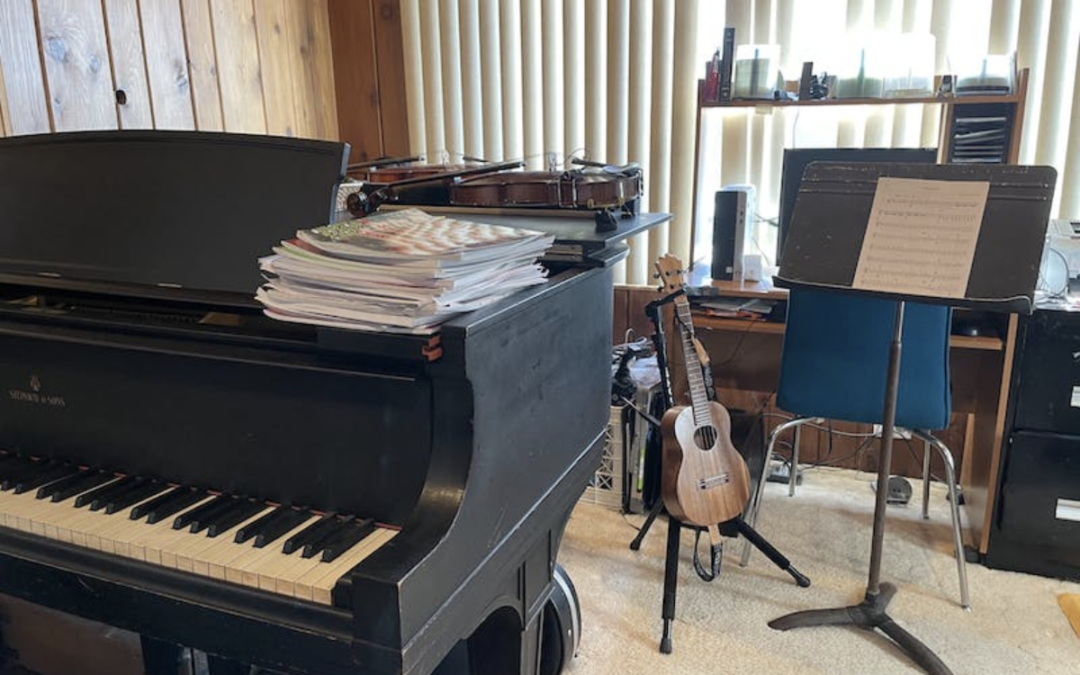So, you have a musical instrument. And you’ve invested in lessons and materials. You enjoy your lessons. And you like your teacher. Now you want to improve.
To improve at anything, you have to commit to it. Be it exercise, diet or learning a musical instrument, it takes self-discipline.
What is Self-Discipline?
Self-discipline is the ability to pursue what one thinks is right despite temptations to abandon it.
Self-discipline is the ability to control yourself and to make yourself work hard or behave in a particular way without needing anyone else to tell you what to do. We all know that this is hard to do. So the question, is how do you make it happen? You need to practice regularly. Here are some steps to do this.
Steps to Make Practicing a Regular Habit
- Create a practice space in your home
- Set up a consistent practice time
- Set up a practice plan of what you will do in each practice session
- Give yourself rewards when you practice regularly
- Record yourself so you can measure improvement
- Set small and reachable goals
- Give yourself grace when life gets in the way of your goals
Create a Practice Space in Your Home
Find a place to set up your instrument, your sheet music, your iPad, phone or computer and a practice notebook. When you see your instrument out of its case, you are more likely to sit down and play it. If your music is ready and your pencil and practice notebook is too, you are more likely to make it happen.
Set Up a Consistent Practice Time
You’re more likely to practice if you set up a regular time to do it. A good time for me is after dinner before I go to bed at night. The relaxation of playing my instrument helps me to wind down from the day. When I was a child, I practiced every morning for an hour before school began. It was a great way to get the day started. Whatever time you choose, plan it into your day and make it consistent.
For children, it can be good to do it right after they get home from school and have a snack. It can be something you do before you start your homework. The chance to do something creative at this point in the day can be a good transition for them.
Set up a Practice Plan of What You Will Do in Each Practice Session
Use a notebook and decide what your goals are. Create a series of tasks that address these goals. Start with these ideas:
- Warm-up (Scales, arpeggios, exercises)
- Review of hard parts or sections in your music
- SLOW repetition of technical issues – use a metronome
- Playing a piece slowly all the way through
- Playing a piece at tempo – record the attempt and listen back
If you take lessons, work with your teacher to develop a practice plan. Make a practice chart and check off what you do.
Give Yourself Rewards When You Practice Regularly
These rewards can be simple. You can even reward yourself by playing your piece all the way through after you’ve worked on all the hard parts of the piece. Or, you can get yourself a little gift if you have a particularly good week of regular practice. I even like having a calendar with a sticker chart. Consider a practice app to keep track. https://www.modacity.co/company/about-us/
Record Yourself so You Can Measure Improvement
Recording yourself is one of the best ways to measure your improvement. You can use Voice Memos on an iPhone for this. You can tell immediately if the song sounds “right.” If not, keep working on it. Over time, you’ll notice improvement.
Set Small Reachable Goals
Just the goal of daily 10-minute practice of one new skill will help you to see improvement. When you reach your goal reward yourself and go on to the next one. Over time you’ll build a habit that will give you great results.
Give yourself grace when life gets in the way of your goals We all get busy and sometimes life gets in the way. If you don’t practice for a while, give yourself some grace. Then, get up and try it again. Over time things will get better.
Click Below to Learn More About Lessons
Jenny guides you to find your musical self. You can learn piano, violin, viola, or ukulele.
